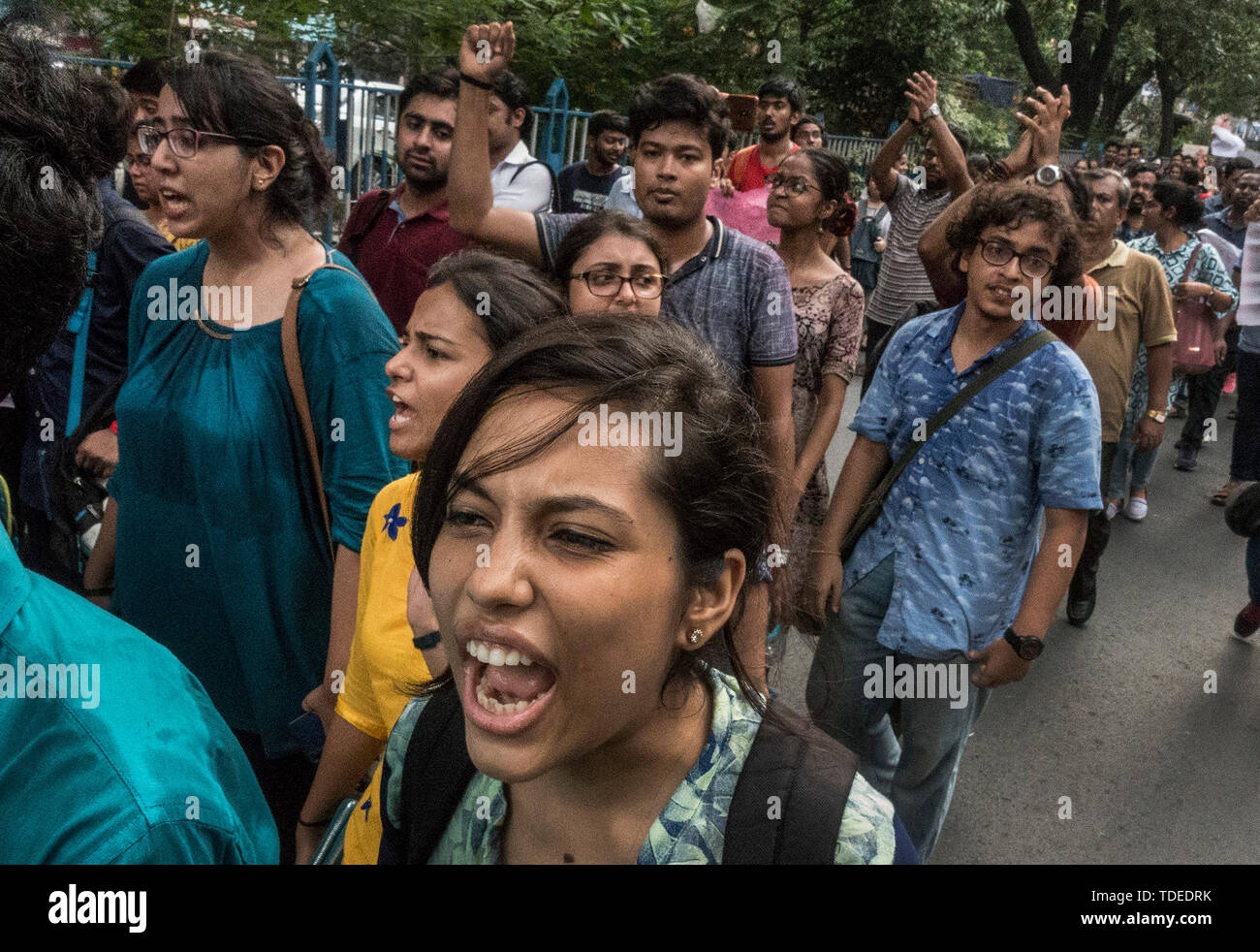


In a stark rebuke of the Kolkata police for their handling of the aftermath of a trainee doctor's rape and murder, the Supreme Court on Tuesday directed the Central Industrial Security Force (CISF) and the Central Reserve Police Force (CRPF) to take over the security of RG Kar Medical College and Hospital. The move came after a mob systematically attacked doctors and medical staff at the facility on August 15, prompting over 700 doctors to leave out of safety concerns. The court also constituted a 10-member task force to formulate a national protocol for the safety of doctors and facilities at hospitals.
Supreme Court Orders CISF to Take Over Security of Kolkata Medical College After Mob Attack
On Tuesday, the Supreme Court directed the Central Industrial Security Force (CISF) and the Central Reserve Police Force (CRPF) to assume security responsibilities for the RG Kar Medical College and Hospital in Kolkata. This unprecedented move followed a mob attack on doctors and medical staff at the facility on August 15, which resulted in the departure of over 700 doctors due to safety concerns.
Background:
On August 15, a 26-year-old trainee doctor was brutally raped and murdered in the hospital's labour room by a group of unidentified men. The incident sparked outrage across the country and raised serious questions about the safety of medical professionals in India.
In the aftermath of the attack, the Kolkata Police faced criticism for their handling of the situation. Protesters alleged that the police failed to respond promptly to the incident and subsequently allowed a mob to enter the hospital and attack medical staff.
Supreme Court Intervention:
The Supreme Court took suo motu (on its own motion) cognizance of the incident and expressed deep concern over the deteriorating safety situation at hospitals in India. In a scathing rebuke of the Kolkata Police, the court directed the CISF and CRPF to take over security at the medical college immediately.
The court also constituted a 10-member task force to formulate a national protocol for the safety of doctors and facilities at hospitals. The task force, led by former Supreme Court judge Justice Asok Kumar Ganguly, will submit its report within six weeks.
FAQs:
1. Why did the Supreme Court order the CISF to take over security at RG Kar Medical College? Answer: The Supreme Court directed the CISF to take over security due to the Kolkata Police's failure to prevent a mob attack on the hospital following the rape and murder of a trainee doctor.
2. What are the responsibilities of the CISF and CRPF at the medical college? Answer: The CISF and CRPF will be responsible for maintaining law and order, securing the hospital premises, and protecting doctors and medical staff.
3. What is the purpose of the national protocol for hospital safety? Answer: The national protocol will establish guidelines and standards for the safety of hospitals and medical professionals in India. It aims to prevent similar incidents in the future.
4. Has there been a similar incident of mob violence at a hospital in India before? Answer: Yes, in 2019, a mob attacked a hospital in Aligarh, Uttar Pradesh, after a patient died during treatment. The attack led to the resignation of several doctors and raised concerns about the safety of medical professionals in the country.
5. What other measures are being taken to improve hospital safety in India? Answer: The government has announced plans to install CCTV cameras and panic buttons in hospitals and to increase the number of police personnel deployed at medical facilities.

Union Home Minister Amit Shah celebrated the Gujarati New Year and his 62nd birthday in his hometown of Ahmedabad, surrounded by senior political leaders, party members, and well-wishers. Shah's rise in public life through the RSS and his partnership with Prime Minister Narendra Modi have shaped Gujarat's and India's political narrative. His sharp organisational mind, efficient approach, and booth-level political management have been key in building the "Gujarat model" that gave the BJP an enduring edge. Despite transitioning to national politics, Shah's political heart still beats in Ahmedabad, as evident in his New Year celebrations and plans to meet the newly appointed ministers of the Gujarat cabinet.

In a recent incident at the Vasai Fort in Maharashtra, a man dressed as Chhatrapati Shivaji Maharaj got into a heated argument with a security guard over language. The man, who was recording a video, berated the guard for not speaking Marathi and disrespecting the legacy of Shivaji Maharaj. Social media users were divided in their opinions, with some criticizing the man's behavior while others felt the guard needed to be taught a lesson.

In a significant moment for gender equality, President Droupadi Murmu became the first woman to visit the Lord Ayyappa Temple in Sabarimala. Accompanied by her team, she performed Darshan and Puja at the shrine, praying for the well-being and prosperity of her fellow citizens. Her visit symbolized the Supreme Court's decision to lift the ban on menstruating women entering the temple, reminding us that devotion knows no gender barriers.

With early voting just days away, the three major candidates vying to become New York City's next mayor are gearing up for the final debate in what could be their last chance to sway voters. The debate, hosted by Spectrum NY1, The City, and WNYC/Gothamist, will cover issues such as affordability, crime, and the role of former President Donald Trump in the city's politics. With the stakes high and the clock ticking, Democrats Zohran Mamdani and Andrew Cuomo and Republican Curtis Sliwa will need to make a strong case for themselves to secure the future of New York City.

CM Yogi Adityanath's statement about the role of "political Islam" in undermining Sanatan Dharma has sparked controversy and discussion throughout the nation. During an event organized by the Rashtriya Swayamsevak Sangh (RSS), he highlighted the struggles of Indian warriors against political Islam, claiming that this aspect of history is often overlooked. Adityanath's remarks have renewed debates on the representation of India's historical narrative and the impact of colonialism and political Islam.

Samajwadi Party chief Akhilesh Yadav's remarks questioning the government's spending on Diwali celebrations in Ayodhya, and his comparison to Christmas festivities worldwide, have sparked controversy. While the BJP has accused Yadav of being envious of Ayodhya's success, the Vishva Hindu Parishad has criticized him for undermining Indian culture. The comments highlight the tension between political parties over religious and cultural events.

On the occasion of Home Minister Amit Shah's 60th birthday, Maharashtra CM Devendra Fadnavis wished him with a special message on Twitter, calling him the "Chanakya of Indian politics." Fadnavis praised Shah's political acumen and leadership, stating that his contribution to the nation remains unmatched. PM Narendra Modi also conveyed his greetings, commending Shah's dedication to public service and national security. Leaders across India, including former Tamil Nadu CM Edappadi K Palaniswami, extended their wishes and praised Shah's steadfast leadership and tireless dedication.

On Home Minister Amit Shah's birthday, Prime Minister Narendra Modi took to social media to convey his wishes and praise his efforts towards improving India's internal security. Modi highlighted Shah's dedication to public service and hardworking nature, which has earned him admiration from across the country.

In a social media post, Prime Minister Narendra Modi wishes Home Minister Amit Shah on his birthday and acknowledges his dedication to public service. PM Modi also highlights Shah's efforts in strengthening India's internal security. Shah's birthday coincides with the Gujarati new year and he will be attending public events in his home state of Gujarat along with Chief Minister Bhupendra Patel.

In a move to empower widowed women, Madhya Pradesh Chief Minister Mohan Yadav announced on Thursday the implementation of the Kalyani Scheme, offering a financial aid of ₹2 lakh for widow remarriage under Operation Sindoor. This announcement was made at the 377th birth anniversary celebration of Maharaja Chhatrasal, a Bundela warrior known for his courage and national pride. CM Yadav also inaugurated a cultural festival, Virasat Mahotsav, in honor of Maharaja Chhatrasal and the warriors and valor of Bundelkhand.